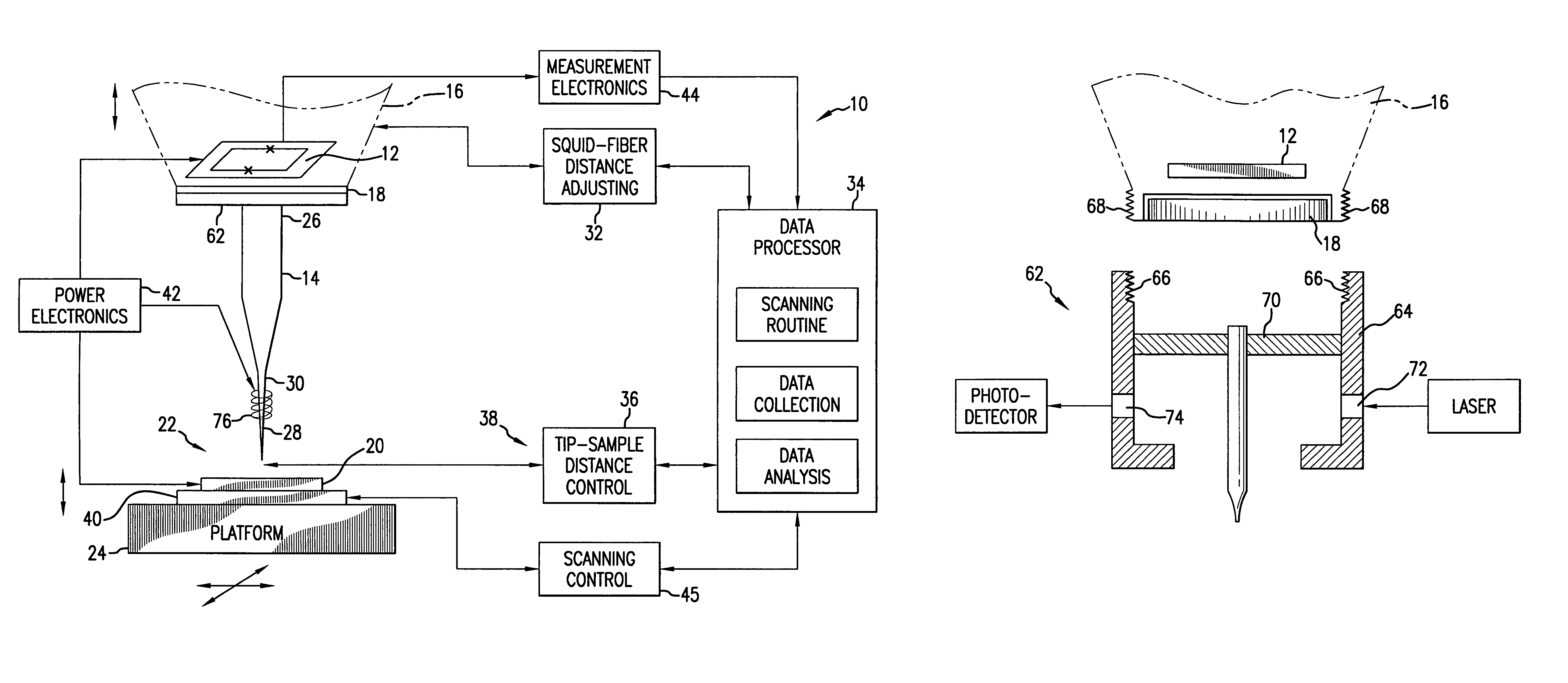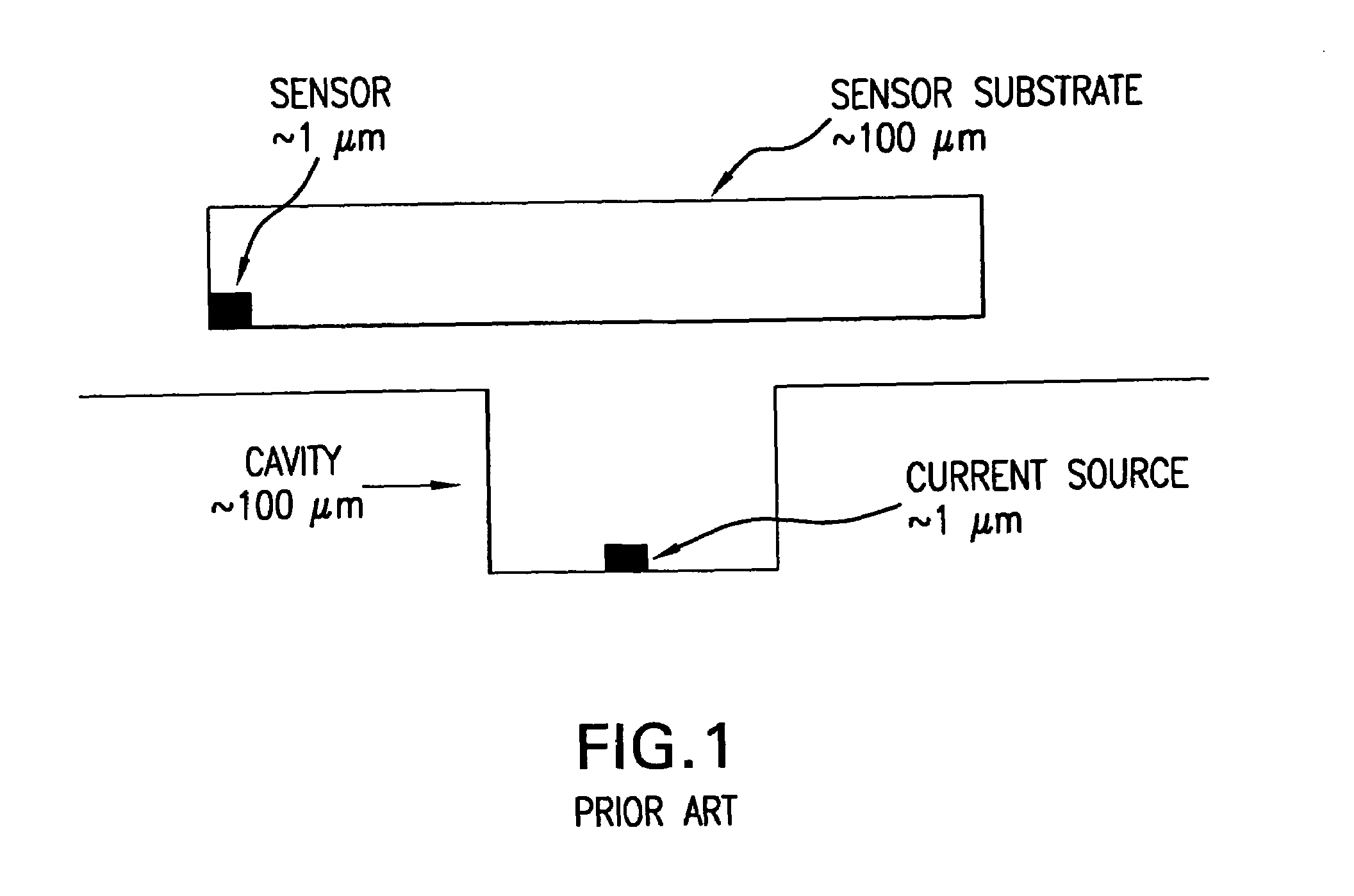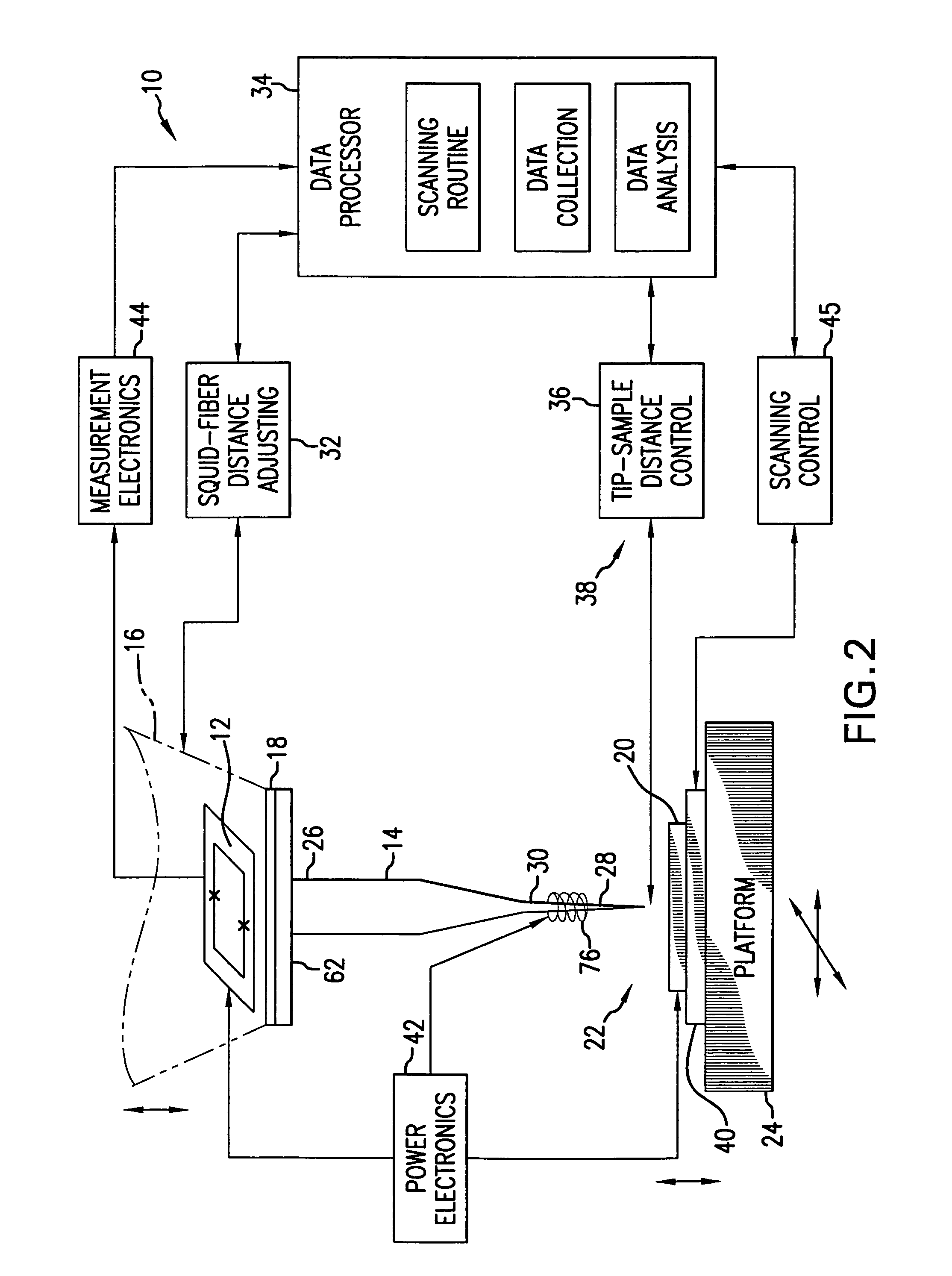Hybrid squid microscope with magnetic flux-guide for high resolution magnetic and current imaging by direct magnetic field sensing
a technology of magnetic flux guide and flux guide, which is applied in the field of current imaging, can solve the problems of limited thermal and optical ineffective optical and thermal techniques commonly used today for fault isolation in the integrated circuit, and the complexity of the package substrate for the new integrated circuit also increases. , to achieve the effect of high sensitivity to magnetic fields
- Summary
- Abstract
- Description
- Claims
- Application Information
AI Technical Summary
Benefits of technology
Problems solved by technology
Method used
Image
Examples
Embodiment Construction
[0052]Referring to FIG. 2, the scanning magnetic microscope 10 includes a magnetic sensor 12 and a fiber probe 14 magnetically coupled to each other. The magnetic sensor 12 may be one of a number of commercially available magnetic sensors, however, in the preferred embodiment, the Superconducting Quantum Interference Device (SQUID) has been chosen due to the extraordinary sensitivity of the SQUID to magnetic fields. The SQUID 12 is enveloped in a housing 16 where a vacuum or a cryogenic (liquid nitrogen) atmosphere at 77K is maintained, as is usual for SQUID operation. The housing 16 has a diamond window 18 which provides a thin transparent window of thickness approximating 10 micrometers.
[0053]A sample 20 which is the object of the non-destructive study for possible fault presence and location, is positioned in an air (non-vacuum) environment 22 at substantially room temperature. The sample 20 is positioned on a platform 24 which is capable of motion in XYZ direction.
[0054]The fibe...
PUM
 Login to View More
Login to View More Abstract
Description
Claims
Application Information
 Login to View More
Login to View More - R&D
- Intellectual Property
- Life Sciences
- Materials
- Tech Scout
- Unparalleled Data Quality
- Higher Quality Content
- 60% Fewer Hallucinations
Browse by: Latest US Patents, China's latest patents, Technical Efficacy Thesaurus, Application Domain, Technology Topic, Popular Technical Reports.
© 2025 PatSnap. All rights reserved.Legal|Privacy policy|Modern Slavery Act Transparency Statement|Sitemap|About US| Contact US: help@patsnap.com



